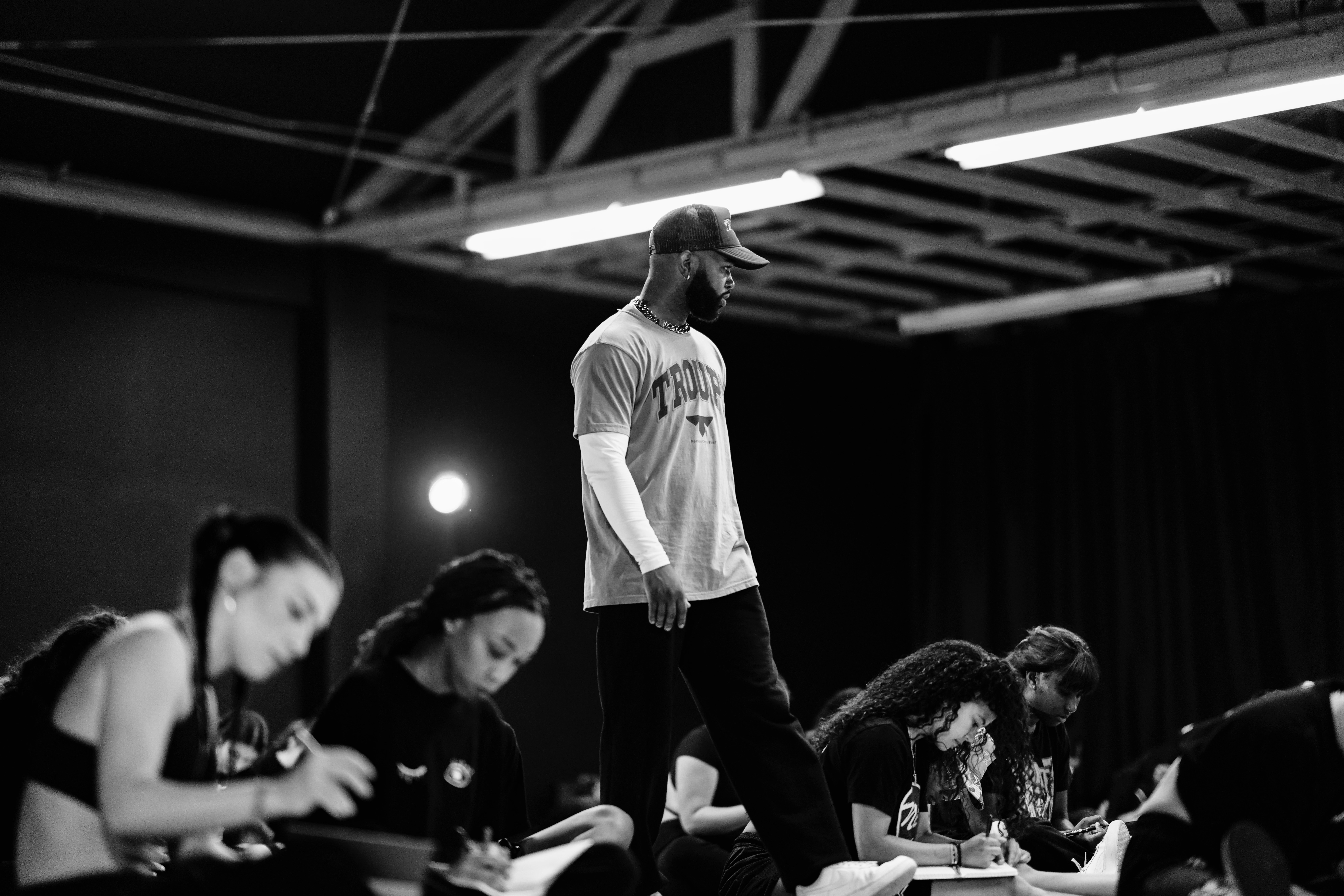We’ve all heard the age-old expression that the three best reasons for being a public school teacher are June, July and August. It makes for great faculty room humor, but about 40 percent of teachers nationwide work a second (or third) job during summer break. Whether it’s to bulk up a bank account, explore new territory or pursue a passion, a summer job can offer more than money. It can provide a break from the ordinary, a change of scenery and a chance to expand your horizons. You can use your time to develop your resumé by working with different age levels, dance styles, teaching environments or approaches. With a little creativity and planning, your summer break can be rewarding in more ways than one.
Dancing for Dinero
Before you start your summer job search, ask yourself whether you want to work as a dance teacher or try something completely different. If dance is your preference, speak to your principal, arts coordinator, personnel director or regional supervisor about arts programs at local schools. Keep in mind that many summer school programs are remedial in nature, so you might want to propose a project that incorporates literacy, math or social studies with movement to jibe with summer curricula.
Contact area dance studios, fitness centers, yoga schools, YMCAs, gyms and youth centers that may need experienced teachers to fill their summer calendars. Don’t be afraid to propose something new to their schedule, such as hip hop for kids, ballet for adults or swing for seniors. You’ve got nothing to lose and you may even plant the seed for a program in the fall.
Museums, parks and recreational centers might also be in the market for dance programs that focus on a specific theme or upcoming exhibit. Rachel Martinez, a K–3 dance teacher in Toledo, Ohio, created a summer workshop that focused on animal movements for kids in conjunction with a local zoo. Local community boards often have funding in their budgets for summer activities at playgrounds, parks or public spaces. They may be interested in a “dancin’ in the streets” or a “salsa under the stars” program.
In addition, the travel and entertainment industries are always searching for performers, choreographers and teachers to work at resorts, various events and on cruise ships. Be sure to check your union journals as well as the trade papers, such as Back Stage and Show Business, for job postings and auditions.
By far, the most plentiful source of summer teaching jobs is at the hundreds of summer camps across the country. You might have been a camper as a kid, but going back as an adult can be a whole new experience. Think of it as a nature retreat with the added bonus of a paycheck, free room and board, and no household chores for two months! At first, camp salaries may not seem that great, but remember that you’ll have very few expenses during your stay. Most camps also offer bonuses to those who take on extra responsibilities, such as directing camp productions or supervising group outings. If you have children, they may be allowed to join you for a fraction of the regular cost. You might even consider renting out your home while you’re away and adding that cash to your summer earnings.
Gigs for Greenbacks
Perhaps you have a hobby or passion that you can parlay into extra summer income? You could opt to recharge your batteries by spending your summer working in a completely different field. A group of high school teachers at John Jay High School in New York City listed an assortment of summer jobs they have held, including scuba instructor, lifeguard, firefighter, landscaper, baseball coach, computer teacher, foreign language instructor, travel agent and wilderness camp leader. In some cases, these summer flings turned into profitable side businesses for a few enterprising teachers.
If you’re looking for short-term employment with minimum commitment, consider contacting a temp agency. As a temp, your hours may be flexible and you’ll gain office experience along the way. Hotels, restaurants and retail stores are also busy in the summer months and often find themselves short-staffed. Working in a local boutique gave Margaret Ward, a K–3 teacher in Boston who also owns a dance studio, just enough retail experience to add a dancewear annex to her school.
If you’re looking to really break away, think about working abroad for the summer. American teachers are in high demand for jobs as camp directors and instructors, tour guides, program coordinators and English teachers in countries around the globe.
Learning for Loot
Summer seminars, institutes and fellowships are available to K–12 educators through a number of government and private sources. Generally, teachers who participate in these programs receive stipends of up to $5,000 to cover their time, tuition, travel and housing costs. The National Endowment for the Humanities offers dozens of institutes through July and August on the following topics and more: Shakespeare, American Literature and Pluralism, Teaching Jazz as American Culture, Poetry, World War II, Don Quixote, Mozart’s Worlds and Landmarks of American History.
The National Endowment for the Arts, the National Geographic Society and many foundations also sponsor similar paid seminars for teachers. You may find summer study grants in conjunction with your local school system, colleges or universities, or a nearby museum or library.
Hunting for Hook-Ups
If you want to land the summer job of your dreams, start your search early and don’t forget to network. Tell your friends, colleagues, students and parents to keep you posted about anything that might sound interesting. In the meantime, do your own research and update your resumé, contacts and business cards. You have nothing to lose, except for a few months’ time. Your teaching job will still be there when fall rolls around and hopefully you’ll return a little bit richer, in more ways than one! DT
Lorelei Coutts is a public school dance teacher in New York City.


